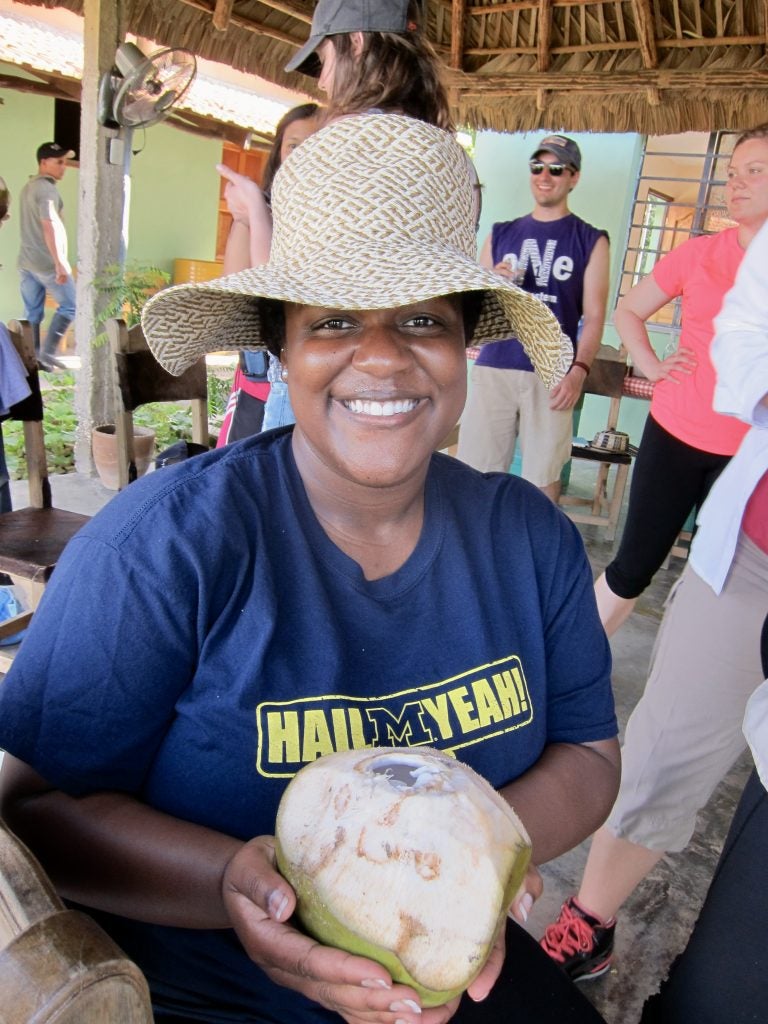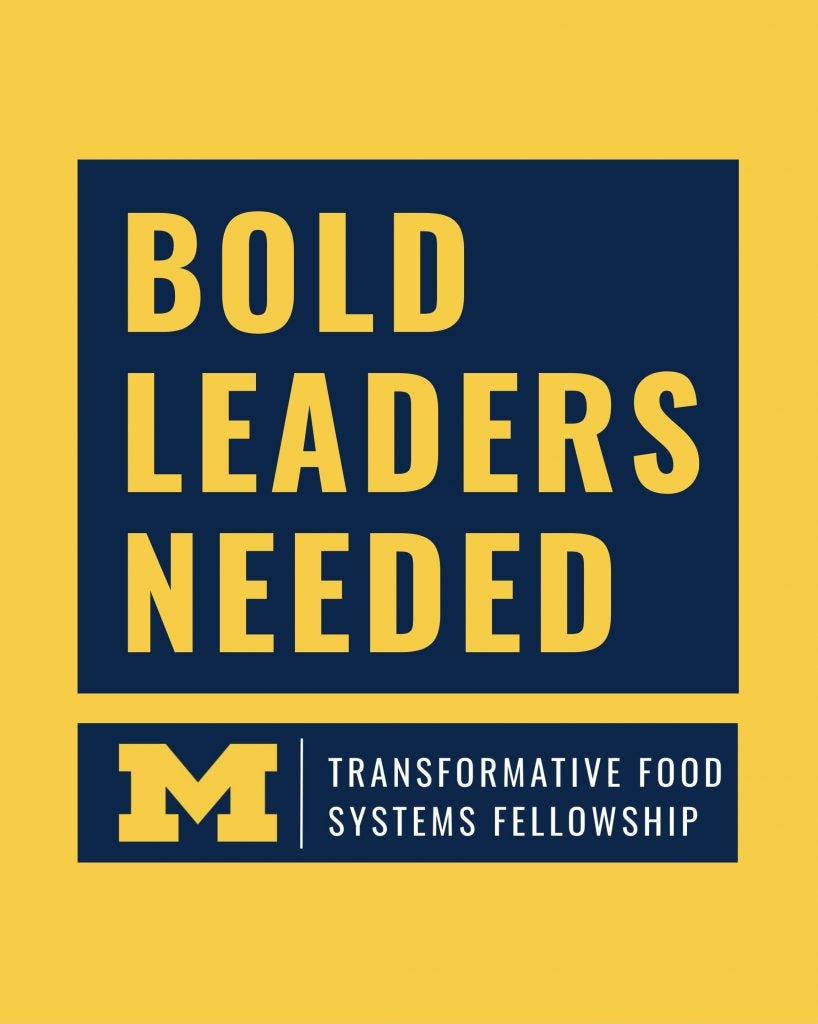

The Transformative Food Systems (TFS) Fellowship at the University of Michigan is rooted in the idea that bold leaders are urgently needed who reflect the communities most affected by intertwined environmental, health and economic food systems crises.
At this time, the TFS Fellowship is a Fellowship limited to two cohorts of students (incoming Fall 2022 and Fall 2023).



During the two-year fellowship, TFS Fellows study food systems from diverse disciplinary angles and gain critical skills needed to construct truly transformative food systems that are more equitable, health-promoting and ecologically resilient.
Read more
While obtaining a Master’s degree from one of three participating University of Michigan units – the School for Environment and Sustainability, Urban and Regional Planning Program, or the Nutritional Sciences Department in the School of Public Health – TFS Fellows also become part of a unique interdisciplinary learning community with other Fellows from units across campus. Through work with mentors, courses, social events, and a field experience, TFS Fellows engage in systems-thinking and collaboration; put technical and theoretical training into action; sharpen leadership, writing and strategic communication skills; build scholarly and professional networks; and explore diverse career paths.
ELIGIBILITY
The Transformative Food Systems Fellowship is open to applicants who are:
- Applying, but not enrolled yet, in a Master’s program in the School for Environment and Sustainability, Urban and Regional Planning Program, or the Nutritional Sciences Department in the School of Public Health
- U.S. citizens, U.S. nationals, or legal permanent residents of the U.S.
- Underrepresented in food systems studies and careers
Read more
By “underrepresented”, we mean anyone who is:
- Low-income and/or has experienced financial hardship (e.g., you received the Federal Free and Reduced Lunch Program, were/are eligible for a Federal Pell grant, receive/received SNAP or WIC, were/are housing insecure)
- The first-generation in your family to earn a four-year college degree
- From an educational, cultural or geographic background that is underrepresented in food systems careers in the United States or at the University of Michigan
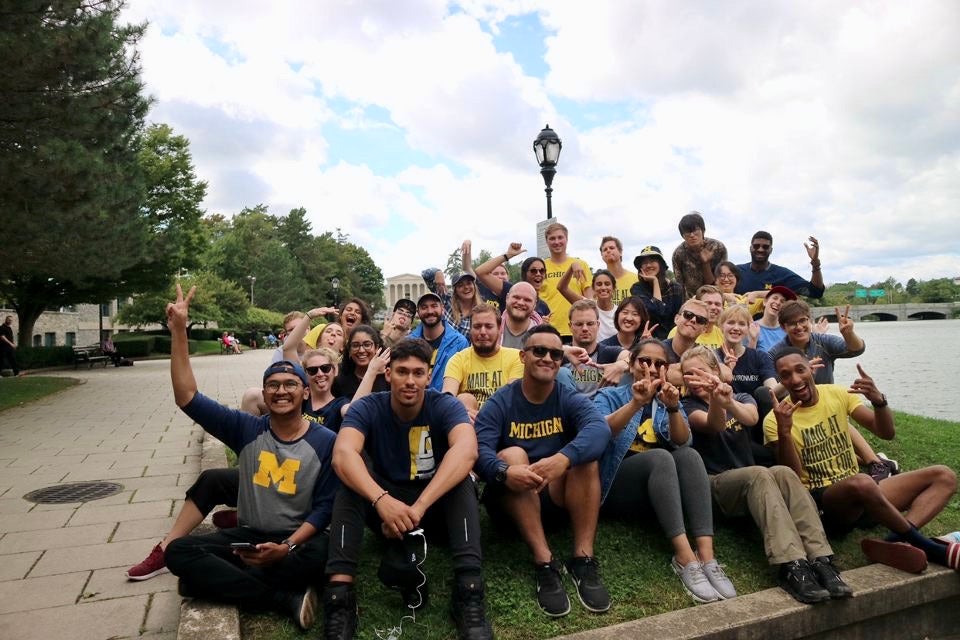
COURSEWORK & MENTORING
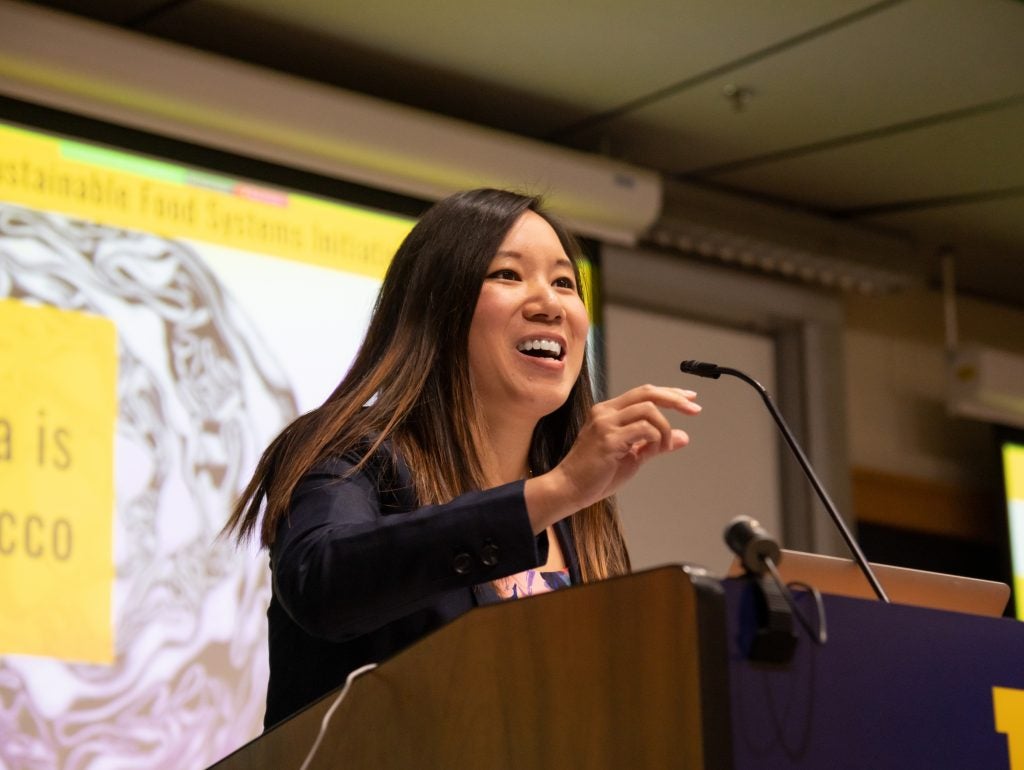
Students work with TFS Advisors, take two required courses, and participate in experiential learning and professional development through an ongoing seminar.
TFS Advisors
Each student will be assigned a TFS Program advisor who will guide students in completing a field experience, selecting courses, finding resources on campus and developing career plans.
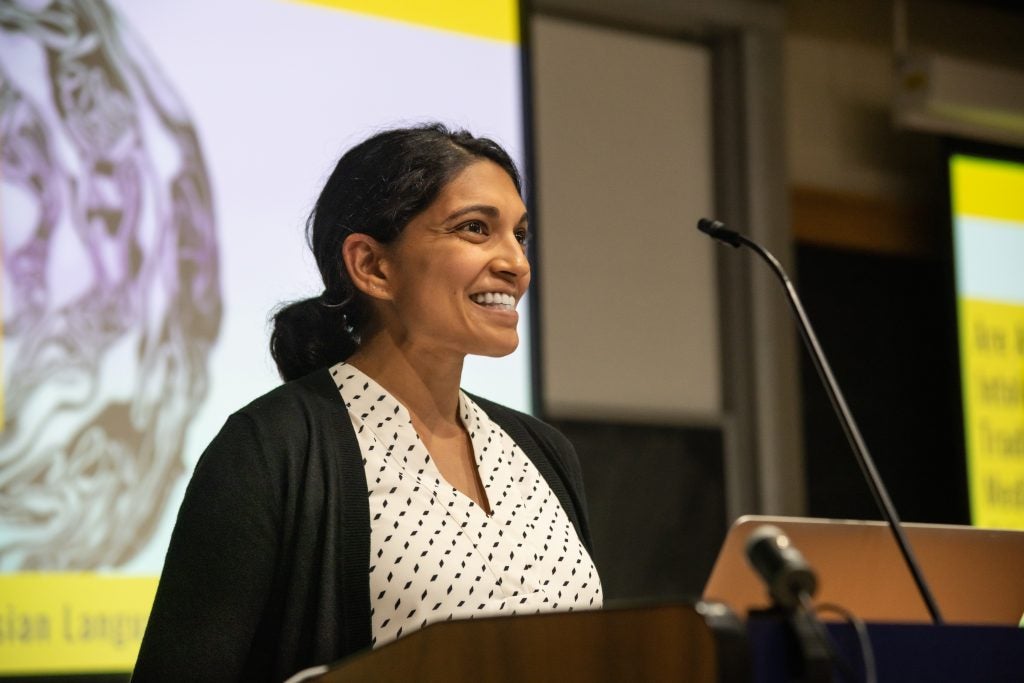
Foundations of Sustainable Food Systems
Co-taught by three faculty, students in this course gain interdisciplinary knowledge of food systems and integrate theory and practice through experiential learning and dialogue-based inquiry, both on campus and in the community.
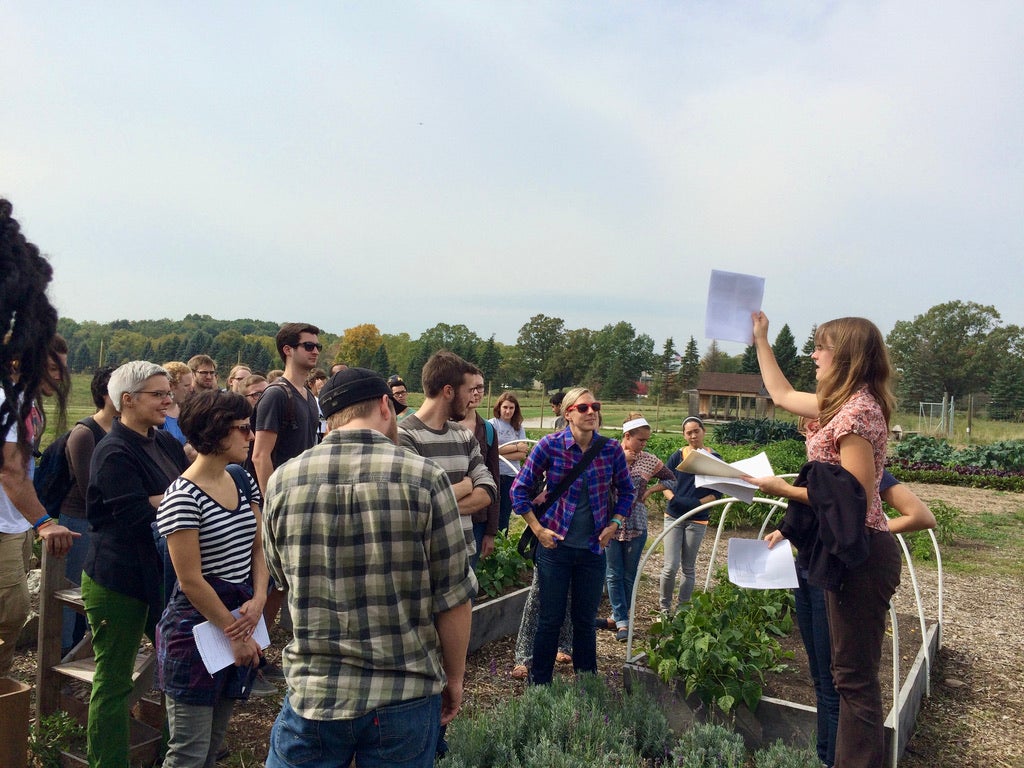
Food Literacy for All
Structured as an evening lecture series and discussion section, Food Literacy for All is a community-academic partnership course that features guest speakers each week who address diverse food systems challenges and opportunities. See course videos here.
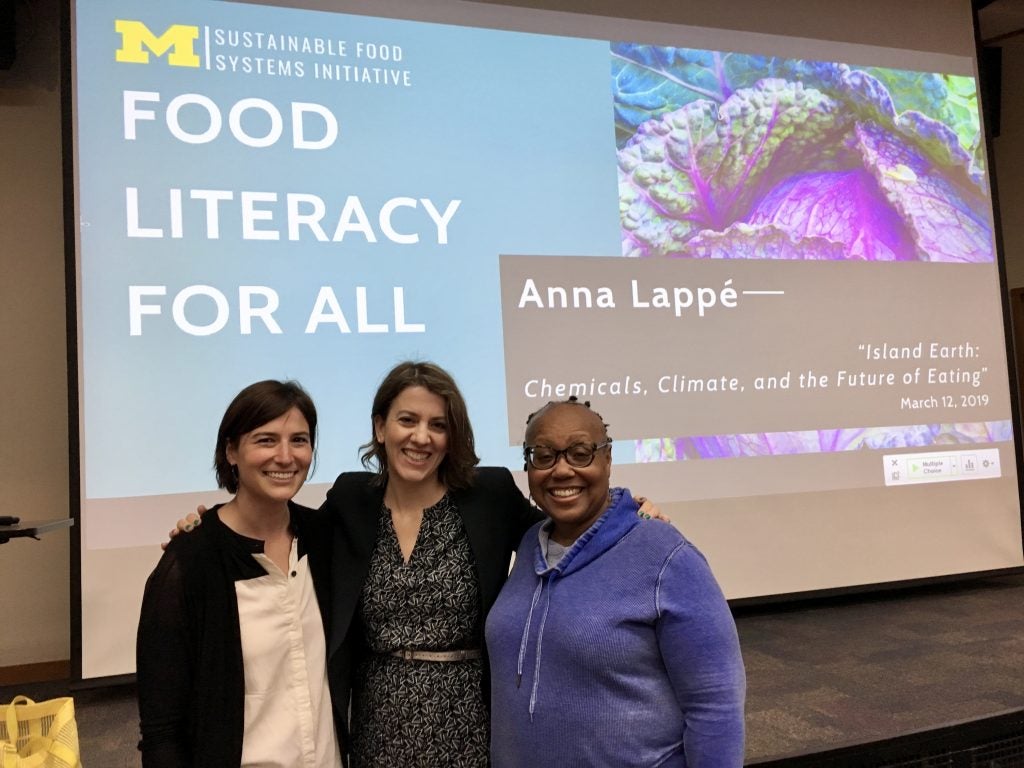
TFS Seminar
Based on experiential learning and a social-ecological systems framing, TFS Fellows enroll in this seminar course every semester during the two-year fellowship, along with other students who are passionate about learning practical skills for food systems transformation.
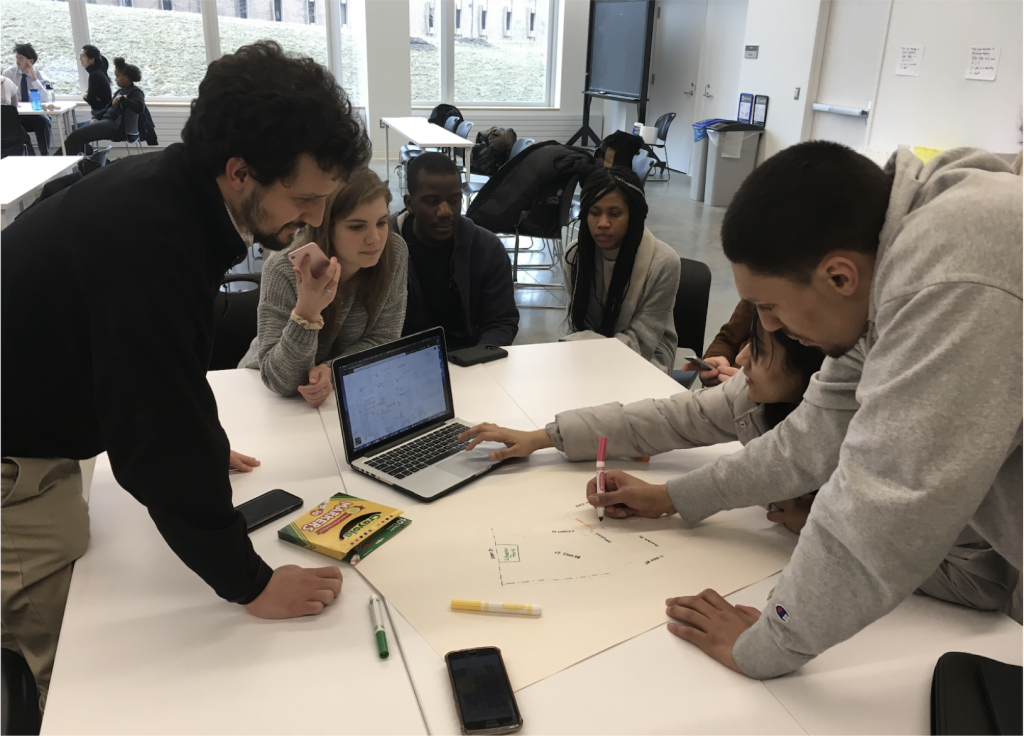
FIELD EXPERIENCE
For their field experience, TFS Fellows learn first-hand from food systems change agents or action researchers about leadership, field research, collaboration, advocacy, community organizing and other skills that are essential for transforming food systems.
Read more
Fellows can join cutting-edge research teams at the University of Michigan, participate in community-based student-led group projects, formulate their own research thesis, or pursue an internship with TFS partners in Southeast Michigan, Vietnam, India, Ethiopia, Puerto Rico, Mexico, or Bolivia.

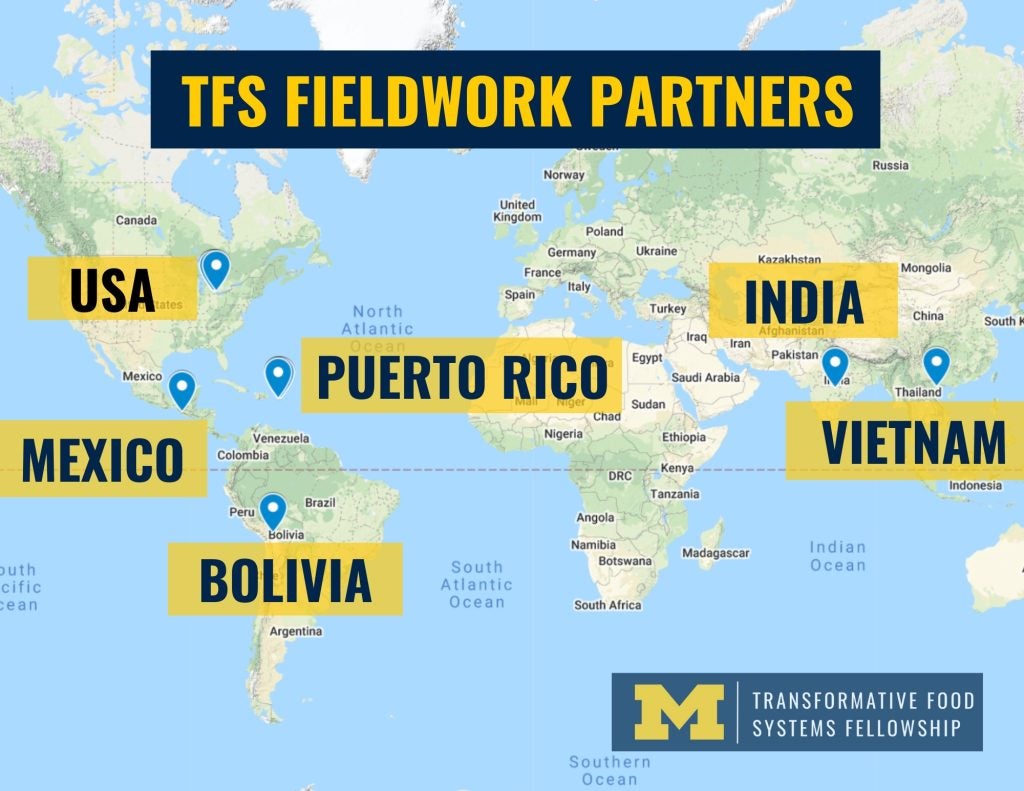
Bolivia
India
- CIMMYT, International Maize and Wheat Improvement Center
Michigan, USA
Puerto Rico
Vietnam
A VIBRANT SCHOLAR / ACTIVIST COMMUNITY
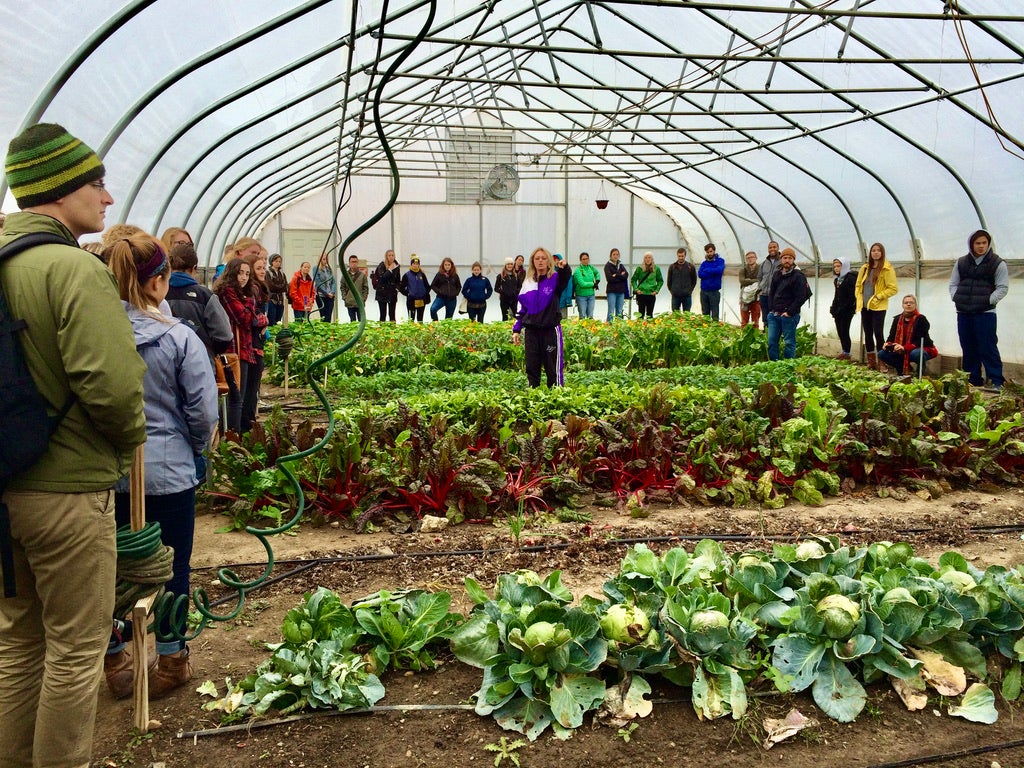
Studying food systems at the University of Michigan offers TFS Fellows a chance to join a vibrant network of students, alumni, and a community of over 70 Sustainable Food Systems Initiative scholars and practitioners who focus on building agroecological, health-promoting, equitable and just food systems.
Read more
Numerous food systems courses, the U-M Campus Farm, U-M Dining and student groups across campus emphasize learning from and alongside practitioners and use campus and the world to train future change leaders, based on principles of equity, environmental and economic sustainability, population health, and applied learning.
Michigan’s alternative food movement is also one of the most visionary and robust in the country. From Detroit to Flint to the Upper Peninsula, Fellows can learn about and contribute to food systems transformation with local activists, forward-thinking farmers, trend setting social enterprises, innovative policy advocates and statewide networks of food councils, food hubs, farm-to-institution advocates and more.
FELLOW BENEFITS
Financial Package
TFS Fellows receive an $18.5K stipend to cover cost of living for each year of their two-year Master’s program for a total of $37K, as well as a $48K tuition scholarship.
The $48K tuition scholarship offers out-of-state students 50% tuition reduction and 75% tuition reduction for in-state students. Students who conduct summer field research or an internship internationally will be eligible for an additional $2,750 to cover travel and cost of living.
Funding Sources
The TFS Fellowship is funded by two grants secured through the United States Department of Agriculture (USDA) National Institute of Food and Agriculture’s National Needs Graduate and Postgraduate Fellowship program and the University of Michigan Rackham Graduate School, School of Public Health, Taubman College of Architecture and Urban Planning, and School for Environment and Sustainability.

Ready to join the ranks of bold leaders?
FAQs
Do TFS Fellows need to be on campus in Ann Arbor or is there a remote option?
The TFS Fellowship is an in-person fellowship based at the University of Michigan Ann Arbor campus. TFS Fellows are full-time Master’s degree students and must therefore follow the residency requirements of their individual Master’s degrees.
How many of the credits can be double counted with my Master’s program?
The field experience can be double counted if students are fulfilling a requirement for their Master’s program (e.g., a SEAS master’s Project or Thesis, URP Capstone Project or School of Public Health Thesis) that also fits TFS Fellow criteria. All required courses – Foundations of Sustainable Food Systems, Food Literacy for All and the TFS Seminar – can be taken for credit under students’ home departments, or alternatively, if students need “cognate” or elective credits outside of their units, students can enroll for credit under other departments.
Can I get a graduate certificate in Sustainable Food Systems?
Yes! We encourage all TFS Fellows to apply for the Graduate Certificate in Sustainable Food Systems since they will essentially be fulfilling all of the requirements of the Certificate. The only thing that you should discuss with your advisor is how to not double count more than half of the credits necessary for the Certificate with your Master’s degree.
What if I pursue a dual degree?
If you do a three-year dual Master’s degree, we encourage you to enroll in the TFS Seminar during the first two years of your dual degree (rather than your first and third, or the last two years), but you can discuss the best arrangement with your TFS Advisor if a different arrangement makes more sense for your situation. A student who has already been studying at the University of Michigan for a year is not eligible to apply for the TFS Fellowship.
Am I eligible to become a TFS Fellow?
The Transformative Food Systems Fellowship is open to applicants who are: A) applying – but not be enrolled yet – in a Master’s program in the School for Environment and Sustainability (SEAS), Urban and Regional Planning Program (URP), or the Nutritional Sciences Department in the School of Public Health, B) U.S. citizens, U.S. nationals, or legal permanent residents of the U.S., and C) underrepresented in food systems studies and careers.
By “underrepresented”, we mean anyone who is: 1) low-income and/or has experienced financial hardship (e.g., you received the Federal Free and Reduced Lunch Program, were/are eligible for a Federal Pell grant, receive/received SNAP or WIC, were/are housing insecure) 2) the first-generation in your family to earn a four-year college degree, or 3) from an educational, cultural or geographic background that is underrepresented in food systems careers in the United States or at the University of Michigan.
How do I apply?
Applications for the Fall 2023 cohort are now closed.
